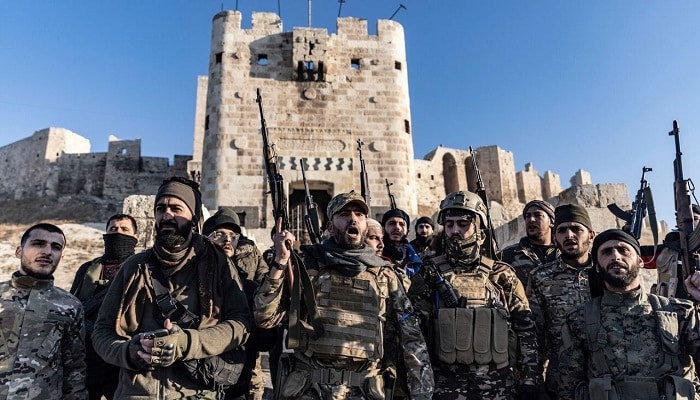PNN – The Washington Post newspaper wrote: The vacuum caused by the overthrow of Bashar al-Assad’s government has increased the efforts for foreign intervention in this country. An issue that can delay peace and stability in Syria and fuel tension in a region that is still involved in war.
According to the report of Pakistan News Network, this American newspaper added: In the first week that passed without Assad’s presence in Syria, three foreign actors targeted this country under the pretext of their strategic interests: America under the pretext of targeting the remaining elements of the ISIS terrorist group in eastern Syria, Turkey against the Kurdish forces in the northeast of this country, and Israel (regime) against Syrian military assets in different regions of this country.
This newspaper wrote that these actions show the important strategic importance of Syria as the point of intersection of different religions and ideologies and the country’s common border with five Middle Eastern countries, and at the same time it emphasizes the possibility of new developments due to changes in military and political alliances.
This American media further claimed: With the end of the Assad dynasty’s five-decade rule in Syria, the dominance of Sunni armed opposition groups in the country, some of whom are inspired by al-Qaeda, is drastically changing the balance of power in the region, noting that the recent history of uprisings and coups in the region, it shows the possibility of instability after the overthrow of governments. The overthrow of Saddam’s government in Iraq in 2003 gave power to the Shiite majority in this country and led to the Sunni rebellion and the rise of ISIS. The overthrow of Muammar Gaddafi in Libya in 2011 led to a long civil war between rebel groups supported by foreign powers. In Egypt, the military quota overthrew the democratically elected government led by the Muslim Brotherhood and restored an autocratic regime.
This newspaper wrote: The civil war in Syria may continue if the conquering forces take revenge in this country, the rebels separate from each other, and foreign powers try to use force in this country.
Read more:
Guardian: The future of Syria must be drawn by the people of this country
Ebrahim Hamidi, a Syrian journalist who lives in London and is the managing director of al-Majla magazine, said: This is a big concern. Now Assad is gone, but what will happen in the future? Many challenges are ahead and difficult questions are raised.
The Washington Post went on to say: How Iran responds to developments in Syria plays a decisive role in the fate of Syria and the region. Tehran may start new negotiations with the West over its nuclear program or seek to rebuild its network of military allies.
Barzan Iso, a Kurdish journalist based in the northeast of Syria, said in this context: If the Kurds face a serious threat, their forces will probably withdraw from many Arab-populated areas that they currently control. We fear Turkey more than Tahrir al-Sham. Any Kurdish retreat would make American forces more vulnerable, at least in some of their bases, and create uncertainty about the future of the US mission in the fight against ISIS.
Fawaz Gerges, a professor of international relations at the London School of Economics, said that if a new regime emerges in Damascus that makes them feel uncomfortable, they may seek to exert influence in Syria by supporting their local forces.
This university professor added: Syria consists of different ideologies and religions, which includes a wide range of jihadists to moderate Islamists, secularists and democrats, and important Christian and Alawite minorities. All these groups have different hopes and expectations for the future, which can make this country vulnerable to foreign interventions.
According to this university professor, internal developments in Syria can allow foreign countries to interfere in the country’s internal issues and add to its problems. He added: Syria has been involved in a proxy war for a long time and I don’t think that there has been a change in this situation.
In the end, the Washington Post quoted Syrian journalist Hamidi and wrote: However, there are reasons to hope that Syria will avoid the worst outcome. The people of Syria have been at war with each other for the past 13 years and they are tired now. If they are aware of the threats they may overcome them.

